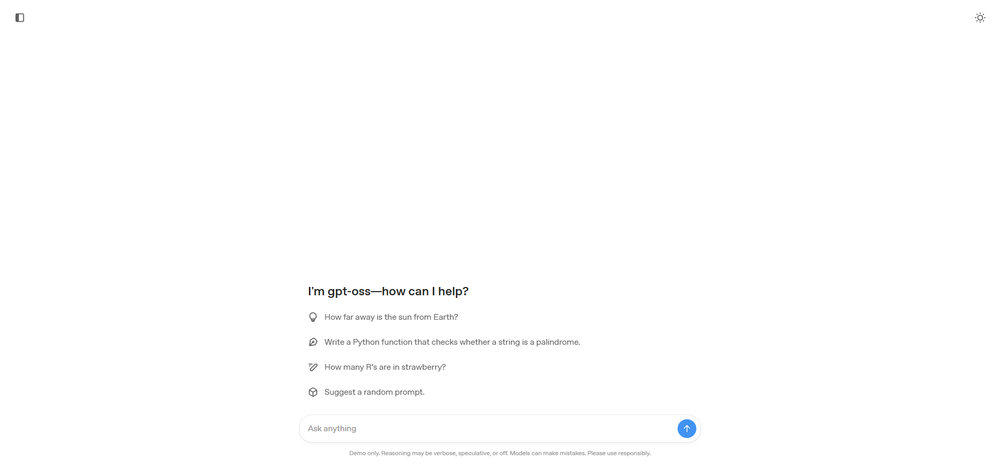LLaMA (Large Language Model Meta AI) is a series of large language models developed by Meta (formerly Facebook). These models have demonstrated exceptional performance in the field of natural language processing (NLP) and are widely applied to tasks such as text generation, translation, and conversational systems.
LLaMA 1
- Release Date: February 2023
- Parameter Sizes: 7B, 13B, 30B, 65B
- Features: This is the initial version of the LLaMA model, showcasing powerful performance across various natural language processing tasks.
LLaMA 2
- Release Date: July 2023
- Parameter Sizes: 7B, 13B, 70B
- Features: Introduced instruction-tuned versions, further improving the model’s usability and performance.
LLaMA 3.1
- Release Date: July 2024
- Parameter Sizes: 8B, 70B, 405B
- Features:
- Multilingual Support: Supports multiple languages, including English, German, French, Italian, etc.
- Context Length: The standard version supports 4K context length, while the long-context version supports 16K, 64K, and 128K context lengths.
- Improved Architecture: Utilizes RMSNorm normalization, SwiGLU activation function, and RoPE (Rotary Position Embeddings) technology to enhance model stability and performance.
- New Features: Introduced virtual assistant capabilities, enabling usage on platforms such as Facebook and WhatsApp.
Chinese-LLaMA-Alpaca
- Release Date: Multiple versions released in 2023 and 2024
- Parameter Sizes: 7B, 13B, 33B
- Features:
- Chinese Optimization: Specifically optimized for Chinese language, suitable for Chinese text generation and understanding tasks.
- Multimodal Support: The latest version also supports visual question answering and dialogue.
Usage-Based Pricing
The usage of LLaMA models is typically billed based on the number of tokens generated. Tokens are the basic units the model uses to represent natural language text. For Chinese text, 1 token usually corresponds to one Chinese character; for English text, 1 token typically corresponds to 3 to 4 letters.
Specific Costs:
- Input Tokens: The cost is approximately $1.95 per million input tokens.
- Output Tokens: The cost is approximately $2.56 per million output tokens.
Text Generation
LLaMA models can generate high-quality natural language text, making them suitable for various text generation tasks such as article writing, news reporting, poetry creation, etc. They can produce coherent and logically sound text based on the provided prompts.
Text Summarization
LLaMA models can automatically extract key information from texts, producing concise summaries. This is particularly useful for processing large amounts of data and improving information retrieval efficiency.
Question Answering Systems
LLaMA models can be used to build question-answering systems, generating accurate answers based on user queries. This technology has broad applications in real-world scenarios, such as intelligent customer service and online education.
Conversational Systems
LLaMA models can simulate human conversations, enabling natural and fluent interactions. They can be applied to smart speakers, chatbots, and other domains to provide users with more intelligent services.
Translation
LLaMA models perform well in multilingual translation tasks, enabling real-time translation across multiple languages while maintaining high quality and accuracy.
Sentiment Analysis
LLaMA models can analyze sentiment in text, identifying positive, negative, or neutral emotions. This has important applications in areas like market analysis and user feedback analysis.
Text Classification
LLaMA models can classify text and identify the category to which it belongs. This is widely used in tasks such as spam filtering and news classification.
Code Generation
A specialized version of the LLaMA model, Code LLaMA, can be used for code generation and understanding, helping developers automatically generate code snippets or perform code completion.
Content Creation
LLaMA models are well-suited for content creation tasks such as blog articles, stories, poetry, novels, YouTube scripts, or social media posts.
Multimodal Applications
The latest version of the LLaMA model also supports multimodal applications such as visual question answering and dialogue, further expanding its range of uses.
Research Tool
Due to its open-source nature, LLaMA has become an important tool in AI research. Researchers can fine-tune LLaMA for domain-specific applications such as healthcare, law, and other professional fields.
Programming Assistance
LLaMA models also have applications in assisting programming tasks, helping developers with code generation, code completion, and error detection.
The LLaMA model series, developed by Meta, is open-source.




